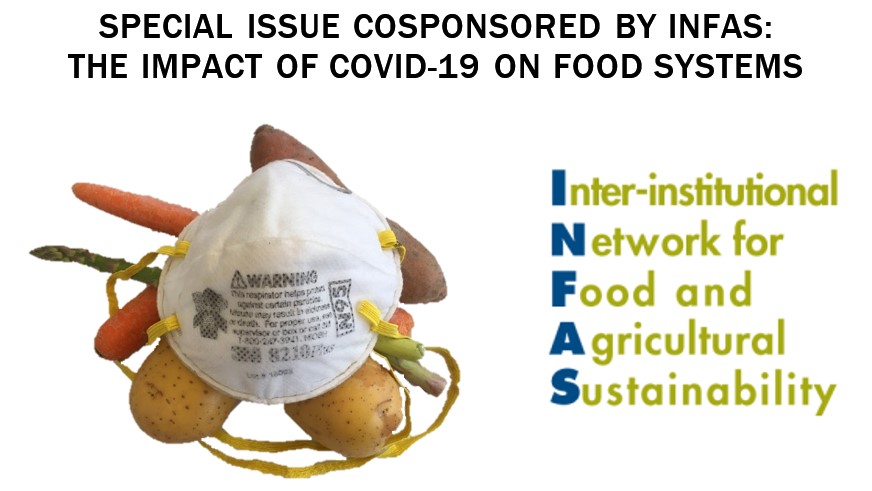Examining food insecurity and areas with unmet food needs during COVID-19
A geospatial, community-specific approach
DOI:
https://doi.org/10.5304/jafscd.2021.103.017
Keywords:
2-1-1 Calls, Community Health, COVID-19, Pandemic, Food Insecurity, Health DisparitiesAbstract
Food insecurity is a public health issue that has increased in the U.S. since the 2020 COVID-19 pandemic. Understanding how this increase occurs locally is crucial in informing appropriate food insecurity-related responses. Analyzing 2-1-1 call data is one way to examine food insecurity-related needs at a zip code level. The purpose of this work was to: (1) examine overall call trend data to 2-1-1 from March through July 2019 and March through July 2020, (2) examine changes in food need call volume to 2-1-1 during COVID-19 by zip code, and (3) identify areas with unmet food needs during COVID-19 in central Texas. Data for 2-1-1 calls from Travis County zip codes for March through July 2020 were compared to calls for March through July 2019 and categorized by reason for calling. Descriptive statistics and paired t-tests were used to analyze food need calls by zip code and mapped using ArcGIS. Communities with high food call volume and no emergency food assets located within the zip code were categorized as areas with unmet food needs. Results indicated there were more overall calls to 2-1-1 in 2020 (N=37,572) than in 2019 (N=28,623), and significantly more food need calls in 2020 than in 2019 (p<0.01). Eastern Travis County, a racially and ethnically diverse and lower-income area, had the largest increase in food need calls. Two zip codes were identified as having unmet food needs, which informed the strategic placement of emergency food assets. This study illustrates how 2-1-1 data can result in rapid translation of research to policy and program implementation.
Metrics

Downloads
Published
How to Cite
Issue
Section
Categories
License
Copyright (c) 2021 The Authors

This work is licensed under a Creative Commons Attribution 4.0 International License.
The copyright to all content published in JAFSCD belongs to the author(s). It is licensed as CC BY 4.0. This license determines how you may reprint, copy, distribute, or otherwise share JAFSCD content.












